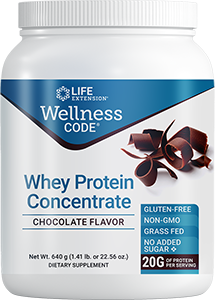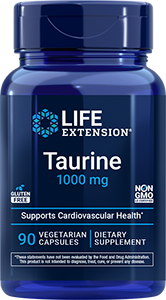
Newsletter
Newsletter
Meta-analysis finds coffee drinking associated with significant reduction in incidence of major diseases in the U.S.

The July 2021 issue of Advances in Nutrition published findings from a meta-analysis that revealed a lower incidence of several major diseases in association with drinking caffeinated coffee.*
Matteo Di Maso of the Università degli Studi di Milano and his associates selected 26 studies that investigated the association between drinking coffee and cardiovascular diseases and deaths, type 2 diabetes, hepatocellular carcinoma (the most common type of liver cancer), endometrial cancer, and melanoma and nonmelanoma skin cancers.
The studies selected were conducted in the U.S. and included a total of 3,713,932 participants among whom there were 93,706 cases of the selected disease outcomes during follow-up. Follow-up periods ranged from 8 to 28 years.
Analysis of pooled participant data revealed a significant reduction in the incidence of cardiovascular disease or mortality of 10%, a decrease in type 2 diabetes of 10%, a decline in endometrial cancer of 15%, a decrease in melanoma of 11% and a reduction in nonmelanoma skin cancer of 8% in association with any non-decaffeinated coffee drinking compared to no consumption. A nonsignificant 7% reduction in hepatocellular carcinoma was also observed in association with drinking coffee.
The greatest reduction in cardiovascular disease/mortality risk was associated with drinking three to four cups of coffee per day. When other outcomes were examined, the risk of disease decreased linearly in association with the number of cups of coffee consumed each day.
For example, drinking 1 cup of coffee per day was associated with a 4% reduction in type 2 diabetes, but 3 cups were associated with a 17% reduction and an 8 cup intake with a 43% reduction.
Using data obtained from the National Health and Nutrition Examination Surveys (NHANES), the researchers estimated that current patterns of U.S. coffee drinking could result in the avoidance of 6% to 12% of the cases/deaths according to the disease being considered.
“Because of its caffeine content, coffee has been considered unhealthy in the past,” the authors wrote. “However, coffee also contains phenolic acids, diterpenes, minerals, nicotinamide equivalent, and other compounds with potentially beneficial effects.”
“This study confirms the beneficial health effects of caffeinated coffee consumption in the US population on cardiovascular disease, type 2 diabetes, hepatocellular carcinoma, endometrial cancer, melanoma, and nonmelanoma skin cancer, and quantifies their possible magnitude,” they concluded.
*Di Maso M et al. Adv Nutr. 2021 Jul 30;12(4):1160-1176.
Products
Apply What You've Learned: Coffee
- While the complaint is often heard that every enjoyable habit ends up being bad for us, coffee drinking remains an exception. Not only is coffee not harmful, but research findings continue to reveal its health-supportive effects.
- Coffee beans contain antioxidant polyphenols such as chlorogenic acid which also helps support healthy blood glucose levels.1,2 However, some of coffee’s antioxidant potential is lost during commonly used roasting processes.3 Using coffee that is roasted using a process that helps retain its contents may provide more benefits.
- Many coffee drinks contain a large amount of high fat cream, whipped cream toppings and/or sugar-sweetened flavorings. While these concoctions may be delicious, a healthier way to drink coffee is black or with nonfat milk or plant-based milk, and no added sugar.
- Although the study reported in this issue of Life Extension® Update adds evidence to the health-protective benefits of coffee that contains caffeine, some individuals are sensitive to caffeine’s effects and may wish to limit their coffee intake to small amounts or use decaffeinated coffee. While less research considers the health benefits of decaffeinated coffee, the studies in which it is considered have also shown benefit.4,5
References
- Carlström M. Nutr Rev. 2018 Jun 1;76(6):395-417.
- Tajik N et al. Eur J Nutr. 2017 Oct;56(7):2215-2244.
- Moon JK et al. J Agric Food Chem. 2009 Jun 24;57(12):5365-9.
- Xiao Q, et al. Hepatology. 2014 Dec;60(6):2091-8.
- Ding M, et al. Diabetes Care. 2014 Feb;37(2):569-86.
Featured Life Extension Magazine® Article
Elevated Cortisol Ages Skin and Hair
While cortisol is a hormone that is essential to human life, the rise in cortisol levels associated with stress and aging is associated with an increase in the risk of chronic diseases and premature mortality.
Cortisol is predominantly produced by the adrenal glands; however, the skin and other organs also synthesize and secrete this hormone.
Higher cortisol levels can cause thinning skin, and a reduction in new skin cell formation and collagen synthesis. Higher levels can also lead to hair loss. Extracts of green tea, lychee, phellodendron bark and magnolia bark may help protect against these unwelcome effects.
What's Hot
Health Concern
JAMA study concludes coffee does not cause abnormal heart rhythm
A large study reported in JAMA Internal Medicine on July 19, 2021 failed to uncover any greater risk of experiencing abnormal heart rhythms known as cardiac arrhythmias among people who consumed coffee.
Age Related Cognitive Decline
Aging is associated with a gradual decline in cognitive function
Related Life Extension Magazine® Articles

Coffee Protects Against DNA Damage
Coffee consumption has been linked to a reduction in the risk and severity of many diseases.
DNA damage contributes to accelerated aging. A recent study suggests that coffee reduces DNA damage by 23% in people.

Brain-Boosting Benefits of Coffee
Consuming around 1-2 cups of coffee per day boosts cognitive function, reduces risk of cognitive decline, and lowers Alzheimer’s risk by as much as 27%.
Register for the Longevity Investors Conference
Use code LifeExtensionVIP to get 20% OFF conference registration.
Expert Education, Networking & Investment Opportunities
September 27, 2021, 3 PM - 7 PM CET/ 9 AM - 1 PM ET
Virtual Conference
#LongevityInvestors
Life Extension Magazine® Issue Now Online
A remarkable number of healthy-longevity findings have been published over the past 18 months.
Moving? Need to update your address?
If you currently receive Life Extension Magazine® and your address has changed, please let us know. Simply call 1-800-678-8989, and we'll gladly update your information in our systems. Or login to your account on LifeExtension.com.






